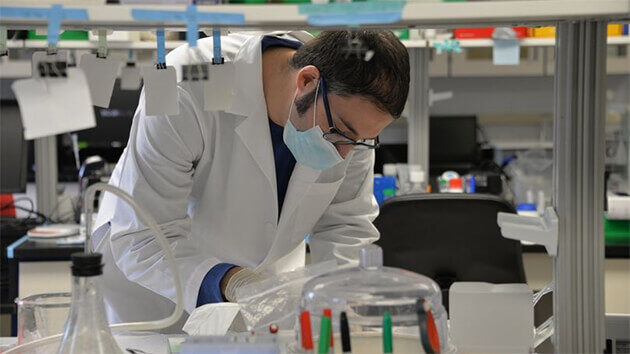NIH Awards Albany Medical College $2M Grant for Cancer Research

Jeremy Logue, PhD, and his team hope to identify how to prevent or slow the movement of cancerous cells
Scientists at Albany Medical College, a member of the Albany Med Health System, have been awarded a $2 million, five-year grant from the National Institutes of Health (NIH) to study how cancer cells move in confined spaces.
“Cell migration is an important part of cancer metastasis and how immune cells detect and destroy cancerous cells,” explained Jeremy Logue, PhD, associate professor in the Department of Regenerative and Cancer Cell Biology and the lead researcher on the study. “By understanding how cells move within confining environments – that is, the tissues that a cell has to pass through to get from one point to another – we may be able to identify ways to prevent or slow the migration of cancerous cells.”
Cells adapt how they move based on the environment they’re traversing. Dr. Logue and his team will focus on a type of movement called fast amoeboid migration. Combining in vitro and in vivo approaches, they’ll seek to determine if the same suite of factors must be in place for both cancer cells and immune cells to transition to fast amoeboid migration in confined environments.
“Elucidating these mechanisms is the necessary first step toward developing a drug or other therapeutic that targets cancerous cells, but that won’t impede healthy immune cells,” said Dr. Logue.
Titled “Molecular Mechanisms of Confined Cell Migration,” the research is funded by a MIRA (Maximizing Investigators’ Research Award) from the NIH’s National Institute of General Medical Sciences (NIGMS).